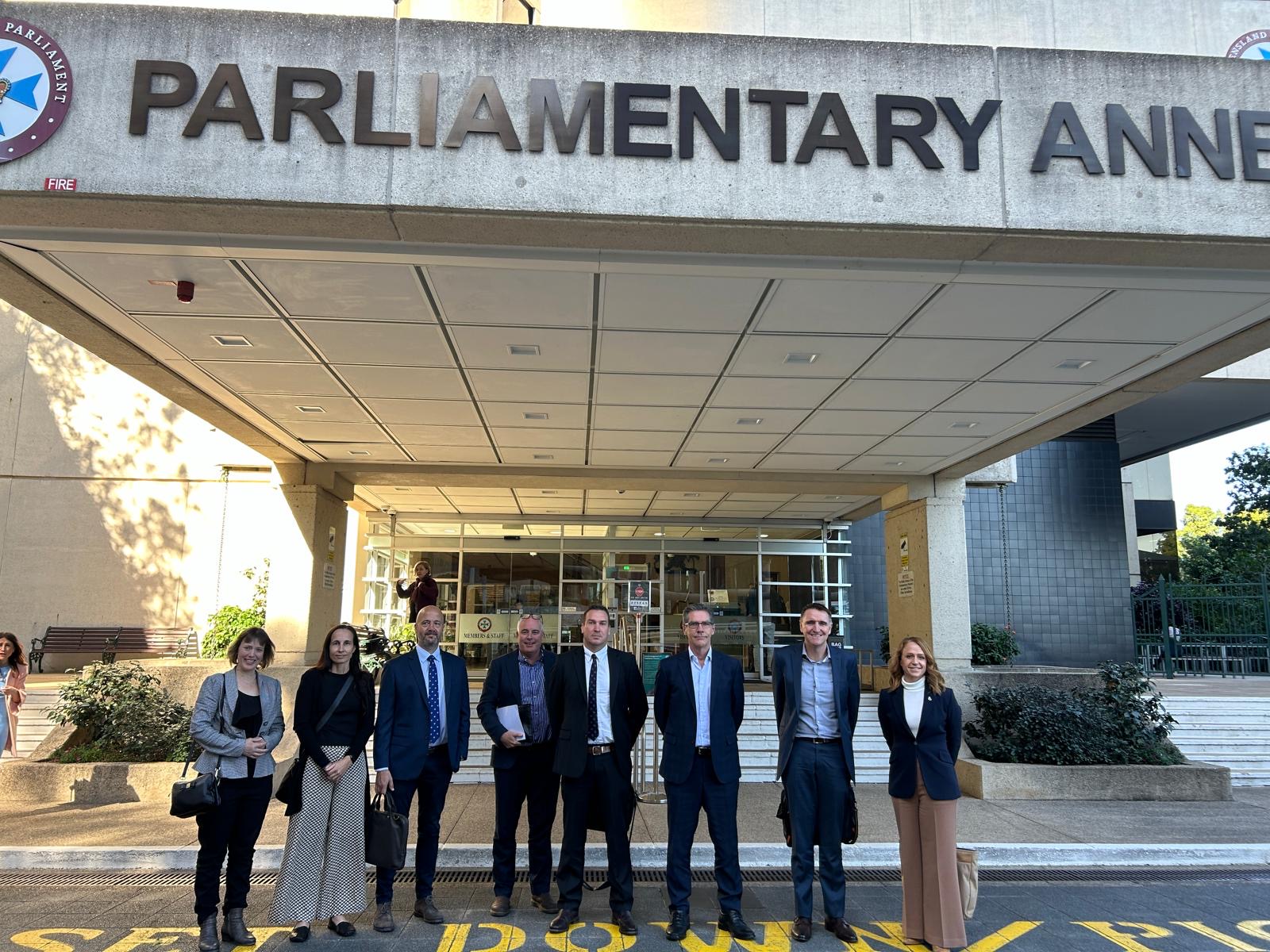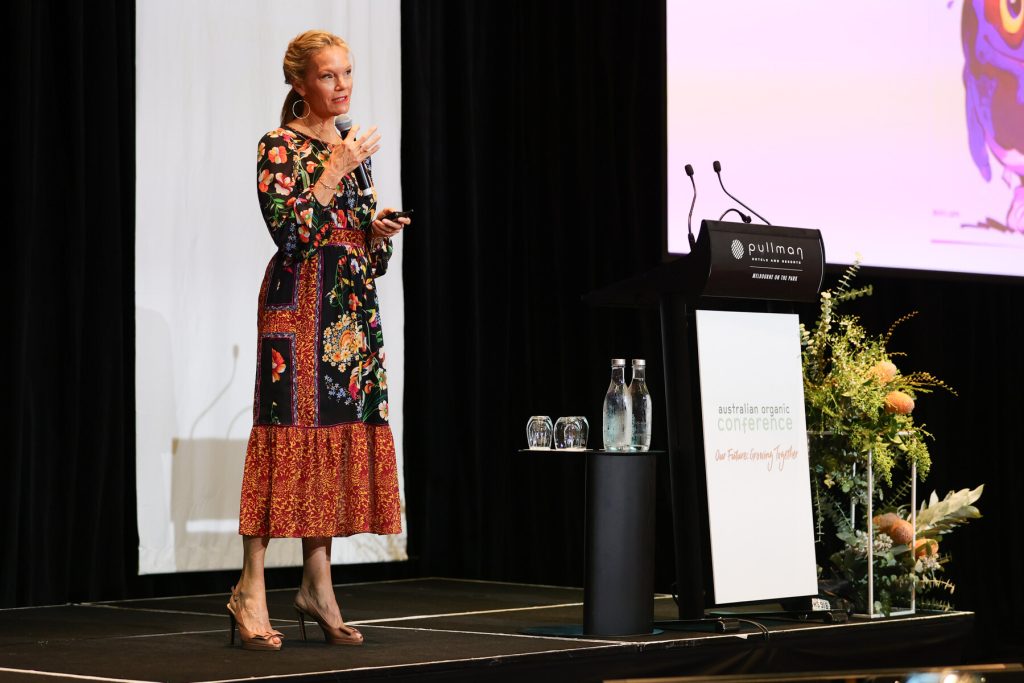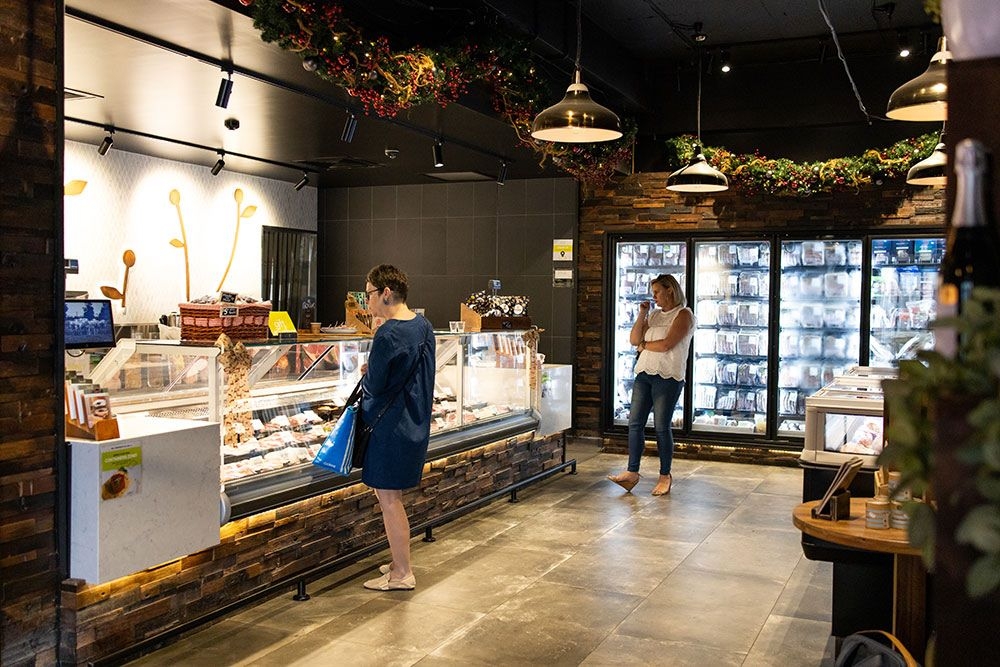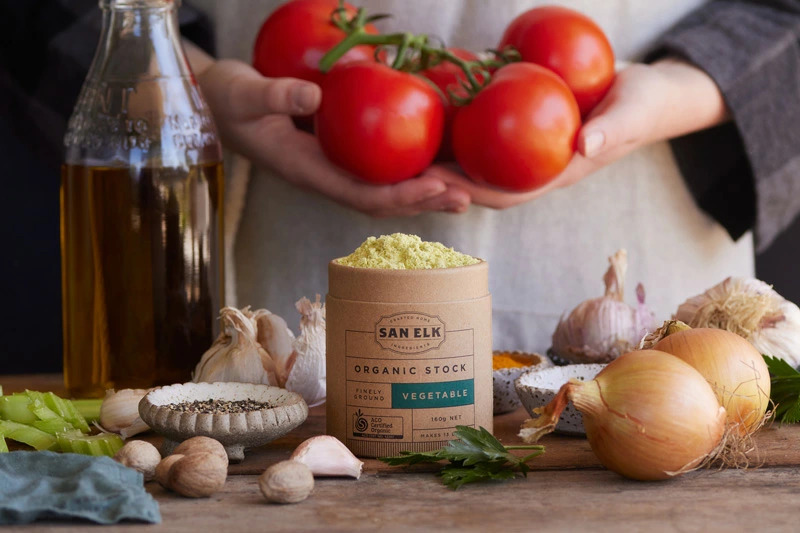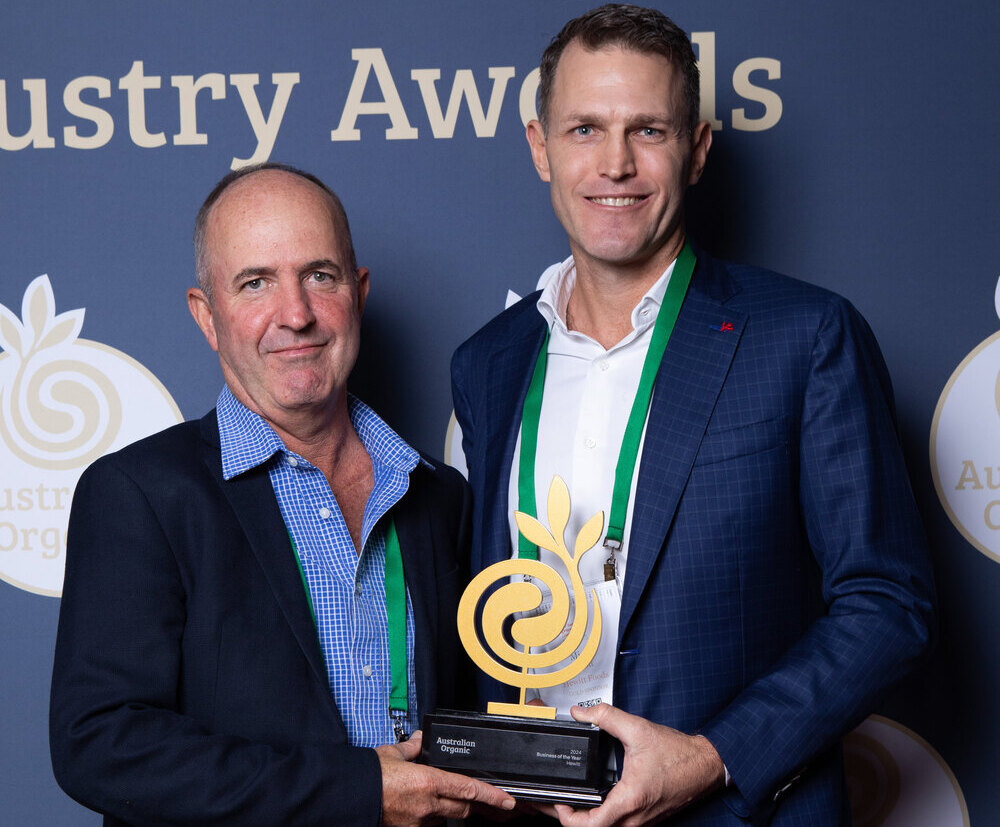The 2024 Australian Organic Conference is underway in Melbourne, with keynote speaker, US impact investor Robyn O’Brien, known as “food’s Erin Brockovich”, saying Australia is the global frontline of the intersection of agriculture, climate and food security.
Centred on the theme ‘Our Future, Growing Together’, the two-day event has brought together the leading lights of the certified organic industry to focus on three pillars – business growth, the environment, and people and animals – covering topics such as profitable production systems, proactive management, how to upscale businesses, and global organic trends.
Australian Organic Limited (AOL) CEO, Niki Ford, addressed the crowd at Pullman on the Park this morning, highlighting the ongoing opportunities and challenges in front of the industry.
“I’ve been in this role for more than five years, and I think we’ve come together more in the last twelve months in the name of growing together than we ever have before,” Ms Ford said.
“The discussions you’ll hear over the next two days will highlight the vast opportunities in front of us from government regulation all the way through to industry insights from overseas.
“We have speakers from the US and New Zealand who will share insights on how we can continue to improve what we’re doing here. It will be exciting as well to hear from all of the political parties that have been supporting us from a government perspective.
“We’ve been around for decades as an industry, but there’s still so much renewed interest in the sustainability and circularity of certified organics.
“This industry is so diverse, which is one of our greatest strengths but also our greatest challenge at times. We’ve got to be better at talking about ourselves and sharing our story. Talking consistently with one, unified voice around the needs of the industry will ensure we can capitalise on the environmental and economic opportunities we have.”
Mick Hewitt, CEO and Managing Director of Hewitt, a Gold Sponsor of the Conference, echoed Ms Ford’s optimism.
“The pathway that we as certified organic producers are on is one of profound importance, and our work is a vital cog in driving positive change for future generations,” Mr Hewitt said.
“Our ethos has always been about nurturing the land and its productivity and creating high-quality products while doing minimal harm to the environment, animals and people.
“While the climate crisis poses many challenges, the certified organic industry is adaptable, innovative and resilient, and continues to grow globally each year.
“I’m always encouraging my team to think big and think together. I’d challenge each of you here today in this room to ensure that your team members care about your mission as much as you do to ensure we continue to promote food security and economic development into the future.”
Keynote speaker for the Conference, global business innovator Robyn O’Brien, emphasised the urgent need for farmers and leaders to adopt regenerative agriculture practices that prioritise soil health, reduce chemical inputs, and promote biodiversity.
“I cannot emphasise enough how important this group is here today,” Ms O’Brien said.
“I absolutely believe that Australia is the frontline of the intersection of agriculture and climate and food security. And whatever we figure out here in Australia, I think, are the best practices that the rest of the world need to know.
“Our food system is changing pretty quickly and pretty radically. This is being driven by escalating rates of disease, the food security crisis, water security crisis and other pressing issues which make the work of certified organic producers even more crucial.
“It’s becoming more widely understood that soil’s ability to carry carbon, nutrients and water is a key part of the climate solution.
“What we do to our soil, we do to our future.
“Up until now we’ve been in an abusive relationship with soil. More farmers realise the need to continue making the transition away from chemical inputs which can damage not only the soil but also the financial health of the growers experiencing increased debt levels – which is why the group here is so important.”
Ms O’Brien, who made the Forbes Impact 50 list of the most notable investors for her work at the intersection of agriculture and climate, emphasised that the choices farmers make also need to be aided by choices made by investors.
“You cannot fix a broken food system with a broken financial system. The debt levels of the growers are a problem, and if the money isn’t there to finance the transition and build smarter systems, the transition cannot happen which is why impact investing is so important,” she said.
“Capital is the first ingredient in the food system. Farmers understand this better than anyone. Water, soil, clean air – these things are not free. If we destroy them, the whole system goes down.
“The problem is you have companies out there trashing the planet, and the revenue they create we call GDP. Then you have a company like Hewitt which is helping to restore and regenerate the planet, and we call it GDP. Those two things are not the same, and yet we give them equal measure. One actually should be penalised for the disruptive impact they have while the others, like Hewitt, should actually be rewarded.”
Ms O’Brien rose to fame in 2008 when she was dubbed food’s “Erin Brockovich” (by Bloomberg and the New York Times) over her concerns of what additives and modifications were being made to foods, particularly focusing on what it could do to children.
“As a mother of four, this is really what keeps me up at night,” she said.
“One in three kids in the US now have what are called the ‘four A’s’ – autism, allergies, ADHD or asthma. Whatever we do to our food system today is what our children will inherit tomorrow.
“I truly believe healthcare starts on the farm. So, we have a choice, and the people in this room have already made it, but the challenge is how we communicate it outside of our community. We need to create the tools and resources to really spread certified organics in a global way.
“We cannot place that burden of education on top of the farmer though, which is why the work that Australian Organic do is so important. I believe that 10 years from now this room will be too small – there’ll be thousands of farmers and industry leaders starting their organic journey with more understanding of what you all already know.”
